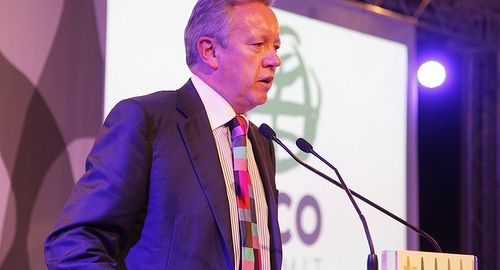There are many who believe that such is the importance to democracy of independent media that Governments will have to return to the business of subsidising that media in the same way that the BBC, The Swiss Broadcasting Corporation, or other major European broadcasters are funded today.
The volume discussion of media will disappear, as media is pervasive, yet the definition of value will dominate our minds and discussions in the next ten years, as will that ever returning Holy Grail of communications measurement. In my view, the concept of measurement should not be confused with counting. Data can be traced, tracked and counted, but insights can only be provided by people.
There is a fascinating company called Dunnhumby that has become so successful over the last few years that earlier on this year it sold its last 10% for £48m. This is a company set up by a British couple and earned itself a massive reputation for the quality of its analytics. This company had become responsible for Tesco's loyalty card programme which is now able to give the most precise insights into the habits of Tesco customers around the world. So valuable do Tesco consider the role of Dunnhumby that they bought the company!
Providing value will always require human intervention. We will ultimately devise more practical and powerful ways to define the value of communications and the impact that reputation has on a company or a product.
Fleishman Hillard has already experimented on a large scale with statistical modeling of reputation’s impact on stock price and sales. Future systems will provide quick, inexpensive calculations of the ROI of specific communications activities. We may be able to get to the point of instantly and accurately defining how much value a specific story adds to the bottom line, or how much a series of customer complaints discussed on Facebook has cost in sales. This kind of measurement will affect everything from planning to budgets.
Something that won't change over the next 10 years is the timelessness of wise counsel in this age of information glut. According to Eric Schmidt of Google, “Every two days the world creates more information than the entire history of the world up until 2003.” All of this means that we live in a world with infinitely more access to information than at any other time in history. Every digital action on the web, mobile devices, point of sale etc. can be logged, stored and analysed. This makes navigating a business harder ‐ not simpler.
Information will continue its current trend of becoming a cheap commodity. As such raw information, raw knowledge is just too much noise in the system. In ten years time, knowledge will no longer equate with power. The winners will be those that are able to blend BOTH the technology to mine this information with the human expertise to provide context and meaning to that information (Prediction No. 9).
Finally, as the world criss‐crosses more and more, I predict that the emergence of India and China will be good for us in Europe ‐ and not the inevitable threat that many people predict (Prediction No.10). Despite the great shifts going on right now, EU exports to key developing countries remains quite low. Even though EU exports to China continue to grow, China is only the sixth largest regional destination for EU exported goods. The EU exports more to Switzerland than it does to China. The EU today has trade deficits in goods with all the BRIC countries with the exception of India.
The authors of “The Transatlantic Economy 2011”‐ an annual survey of jobs and trends – argue that as investment flows of the US and Europe begins to shift more towards the developing nations this should not be viewed as catastrophic for the transatlantic economy. The shift, they argue, simply reflects that global economic activity is dispersing to multiple engines of economic dynamism and growth. Whereas globalisation between 1980 and 2005 was largely about the further integration of the US and Europe, globalisation in future will be more about the further integration of the developing countries into the global economy.
The European communications industry today has an opportunity to form alliances that will help guide our clients into the future. I also believe that European communications professionals are well poised to be able to work successfully in the Middle East and Africa, helped greatly by common languages such as French or Portuguese in rapidly developing economies such as Angola. Our personal ability to alter global macro change is, of course, very limited and the future of our world looks more uncertain than at any time in the past few decades. I for one have no doubt that our ability to communicate effectively – whether it be politicians, CEOs or our own firms – will become even more important in the next decade.
We will need to learn everything quicker, understand everything sooner and define our value smarter.
Kaynak
by John Saunders, Regional President EMEA, Fleishman Hillard
*This is a combination of presentations given at the ICCO Summit in Portugal and the 50th Anniversary of Société Romandes de Relations Publiques in Switzerland during September & October 2011
http://iccosummit.org/uploads/docs2011/JohnSaunders_summary.pdf













